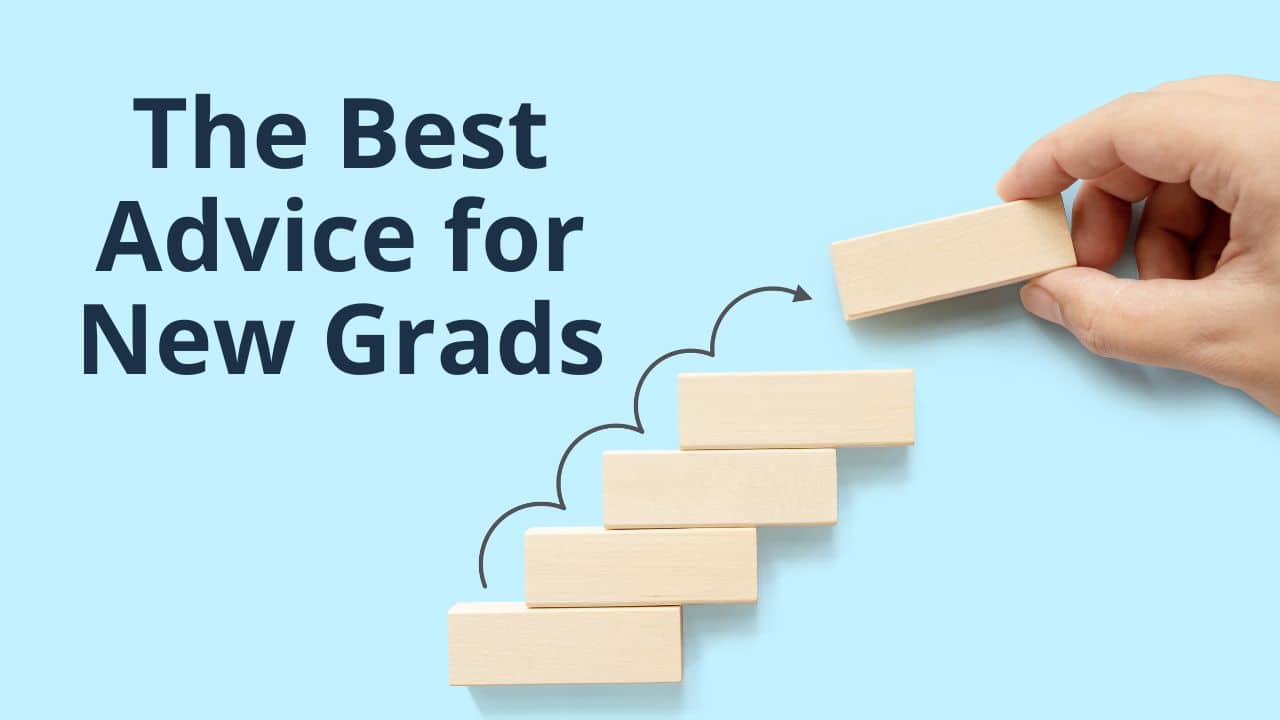Best Advice for New Grads

An edited version of this article appeared in Forbes Coaches Council
If you could go back in time, what advice would you have given your newly graduated self?
I wrote this latest newsletter this past summer when I was in Carmel for my third annual “work-cation” with my husband. I’ve come to value this time immensely. Despite working, I find that being away from the day-to-day chores, to-dos and commitments feels like an exhale. One, where I breathe in salty fresh ocean air instead. This year was extra special since both my sons joined us for part of the time – meaning I was more indexed on the “vacation” part of this work-cation.
My older son’s visit was his last for a while because he was about begin his first full-time position! While I’ve written recently about how to thrive in a new role – I realize that article was geared towards experienced leaders and mid-career folks. Therefore, in honor of my son taking the first step on his career journey, I wanted to create some guidance for new grads and 20-something Gen Z’ers, just at the beginning of their careers.
While there are countless books and articles for new grads to read, the amount of advice out there can be dizzying. This article highlights three of the MOST important things for new grads to add to their early career toolkit. So please, do the new(ish) grad in your life a favor and forward them this article. Chances are they will at least glance quickly at it and maybe pick up one helpful tip.
Dr. Jo’s Best Advice for New Grads
1. Embrace being a learner and not a knower. It’s so tempting, in your first job – heck in any new job – to try to prove your worth immediately. However, this has you show up as someone who only wants to demonstrate their knowledge and value versus someone who wants to learn more about their work environment and eventually add more value. I love this analogy of treating your career like a Scavenger Hunt from my colleague Dorian Cunion. As you’re figuring out what you’re most interested in and where your non-academic strengths are, leaning on Scavenger Hunt learning encourages curiosity, experimenting with the unfamiliar, and asking questions.
Instead of settling into a comfortable place in your early role, embrace taking risks and volunteering for new experiences and responsibilities. You might not be a natural at everything but you will learn more, while setting yourself apart as someone who embraces challenges and is consistently open to stretching your comfort zone.
2. Become a sociologist studying your new work environment. I’m using this analogy that I co-created with a senior leader I work with. When you’re in a new environment, you want to practice balancing asking questions with observations. As my good friends, Rebecca Zucker and Michael Dolan recommend: “Don’t be afraid to ask questions. The path to competence is paved with moments of not knowing, followed by good questions and seeking support.”
I couldn’t agree more. AND. . .it’s important to not only ask but also observe what the right forums are and the best ways to ask questions (meetings, emails, Slack, 1-1s)? How do more experienced employees navigate their learning in a new role? How do people signal their openness and availability versus the need to focus or work heads down?
It’s important to advocate for your learning as well as study the tools and resources available to you in your new environment and take full advantage of them. Often new grads default to their preferred way of learning without investigating the full range of support at their disposal.
3. Step back and reassess regularly. It takes such an effort to get established in your new role that when you finally feel comfortable, it’s easy to get lulled by the rhythms of your work and curtail your curiosity. That’s why I always advocate building “strategic step -back time” regularly into your calendar, weekly, bi-weekly or at the very least monthly.
During this strategic step-back time, here are three questions to ask yourself and try to answer. Feel free to grab a sheet of paper, a journal, or even leave yourself a voice memo.
- What have I learned about myself recently? Any strengths/interests I’ve noticed? Growth opportunities I need to be aware of? New things I want to learn more about?
- What are the most important priorities in my group right now? How could I contribute even more help towards meeting these goals? The wise Rebecca Zucker advises to always “try to think one step ahead of your manager,” not to show them up, but to become an invaluable thought partner to them.
- Who would I like to know better or learn from? Don’t limit yourself to your group or department, try to meet and learn from people throughout your organization whether through ERGs (employee resource groups), community events, or just reaching out to someone you admire and asking to take them out for (or bring them) a beverage for a 20-minute coffee chat.
The bottom line is that there are always more ways to learn and grow on the job. The faster you understand that it’s your responsibility to navigate your career journey, in addition to doing your day job well, the savvier you will be at steering that course. Sherri Cohen summed up “Begin your leadership development journey as soon as you enter the workplace. We are all leading by how we show up each day.”
Start your leadership right away with this toolkit.